constituent assembly of india debates (proceedings)- volume vii
constituent assembly of india debates (proceedings)- volume vii
constituent assembly of india debates (proceedings)- volume vii
You also want an ePaper? Increase the reach of your titles
YUMPU automatically turns print PDFs into web optimized ePapers that Google loves.
themselves to terracing equally well and in some parts, there may be a portion which could be terraced<br />
without prohibitive cost, or economically cultivated, by this method. Terracing means labour, a suitable<br />
hill side and the possibility <strong>of</strong> irrigation. When these are not all available it is obvious that the tribes<br />
cannot be persuaded to take up terracing and must continue jhum. While therefore, we feel strongly that<br />
jhuming should be discouraged and stopped whenever possible, no general legislative bar can be<br />
imposed without taking local circumstances in the account. Besides there is a feeling among the tribes<br />
that jhuming is part <strong>of</strong> their way <strong>of</strong> life, and that interference with it is wanton, and done with ulterior<br />
motives. The wearing out <strong>of</strong> that feeling must come from within rather than as imposition from outside<br />
which may cause undue excitement among the tribes. We propose therefore that the control <strong>of</strong> jhuming<br />
should be left to local councils who, we expect, will be guided by expert advice.<br />
12. CIVIL AND CRIMINAL COURTS -<br />
On the principle that the local customary laws should be interfered with as little as possible and that<br />
the tribal councils and courts should be maintained we recommended that the hill people should have full<br />
powers <strong>of</strong> administering their own social laws, codifying or modifying them. At present the Code <strong>of</strong><br />
Criminal Procedure and the Civil Procedure Code are not applicable to the hill districts though <strong>of</strong>ficials are<br />
expected to be guided by the spirit <strong>of</strong> these laws. In practice, criminal cases, which are not <strong>of</strong> a serious<br />
nature like murder and <strong>of</strong>fences against the State, are left to the tribal councils or chiefs to be dealt<br />
within accordance with custom. Usually <strong>of</strong>fences are treated as matter for the payment <strong>of</strong> compensation<br />
and fines are inflicted. There appears no harm and a good deal <strong>of</strong> advantage in maintaining current<br />
practice in this respect and we recommend accordingly that all criminal <strong>of</strong>fences except those punishable<br />
with death, transportation or imprisonment for five years and upwards should be left to be dealt with in<br />
accordance with local practice and that so far as such <strong>of</strong>fences are concerned the Code <strong>of</strong> Criminal<br />
Procedure should not apply. As regards the more serious <strong>of</strong>fences punishable with imprisonment <strong>of</strong> five<br />
years or more we are <strong>of</strong> the view that they should be tried henceforth regularly under the Criminal<br />
Procedure Code. This does not mean that tribal councils or courts set up by the local councils should not<br />
try such cases and we contemplate that wherever they are capable <strong>of</strong> being empowered with powers<br />
under the Criminal Procedure Code this should be done. As regards civil cases (among the tribes there is<br />
little distinction between criminal and civil cases) we recommend that except suits arising out <strong>of</strong> special<br />
laws, all ordinary suits should be disposed <strong>of</strong> by the tribal councils or courts and we see no objection to<br />
the local councils being invested with full powers to deal with them, including appeal and revision. In<br />
respect <strong>of</strong> civil and criminal cases where non-tribals are involved, they should be tried under the regular<br />
law and the Provincial Government should make suitable arrangements for the expeditious disposal <strong>of</strong><br />
such cases by employing Circuit Magistrates or Judges.<br />
13. OTHER LOCAL SELF GOVERNMENT -<br />
As regards such matters as primary schools dispensaries and the like which normally come under the<br />
scope <strong>of</strong> local self-governing institutions in the plains it is needless for us to say that the Hill Districts<br />
should get all such powers and except in the North Cachar Hills and the Mikir Hills, we are <strong>of</strong> opinion that<br />
the Hills People will be able to takeover control <strong>of</strong> such matters without much difficulty. With a view to<br />
providing some training and thereby smoothening the transition, the Chairman <strong>of</strong> our Sub-Committee<br />
has already taken up the question <strong>of</strong> establishment <strong>of</strong> councils with powers <strong>of</strong> local boards. The<br />
difference between the councils we contemplate for the Hill Districts and Local Boards will already have<br />
been clear from the foregoing paragraphs. It is proposed to entrust these councils with powers <strong>of</strong><br />
legislation and administration over land, village forest agriculture and village and town management in<br />
general, in addition to the administration <strong>of</strong> tribal or local law. Over and above these matters the tribes<br />
are highly interested in education and feel that they should have full control over primary education at<br />
least. We have considered this question in all its aspects and feel that the safe policy to follow in this<br />
matter is to leave it to the local councils to come to a decision on the policy to be followed. We<br />
recommend that primary education should be administered by the Local Councils without interference by


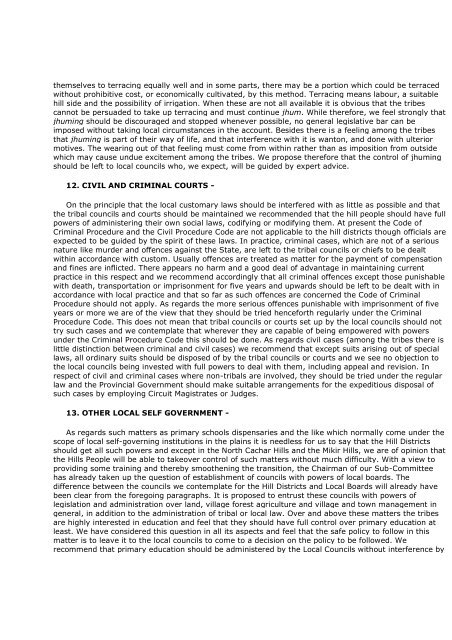
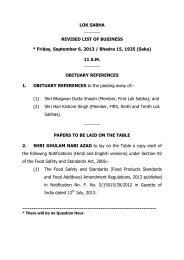
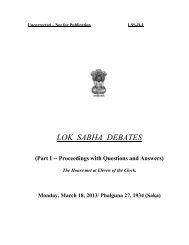
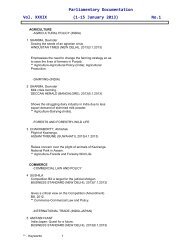
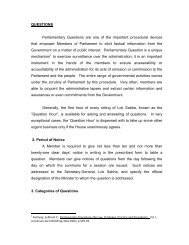
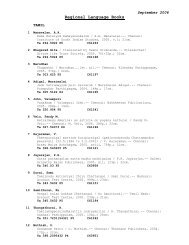
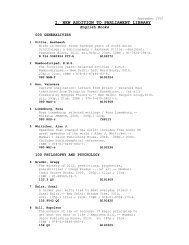
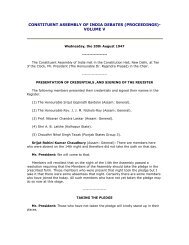
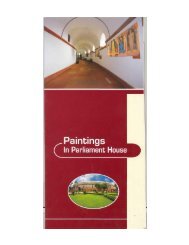
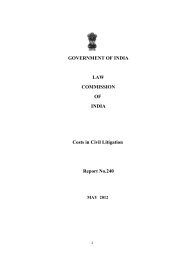
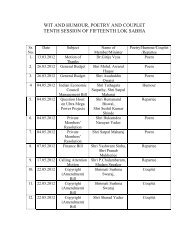
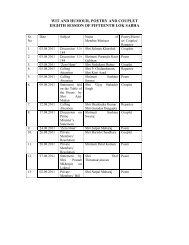

![gÉÉŌ A.]ÉŌ. xÉÉxÉÉ](https://img.yumpu.com/8015720/1/190x245/geeo-aeo-xeexee.jpg?quality=85)
